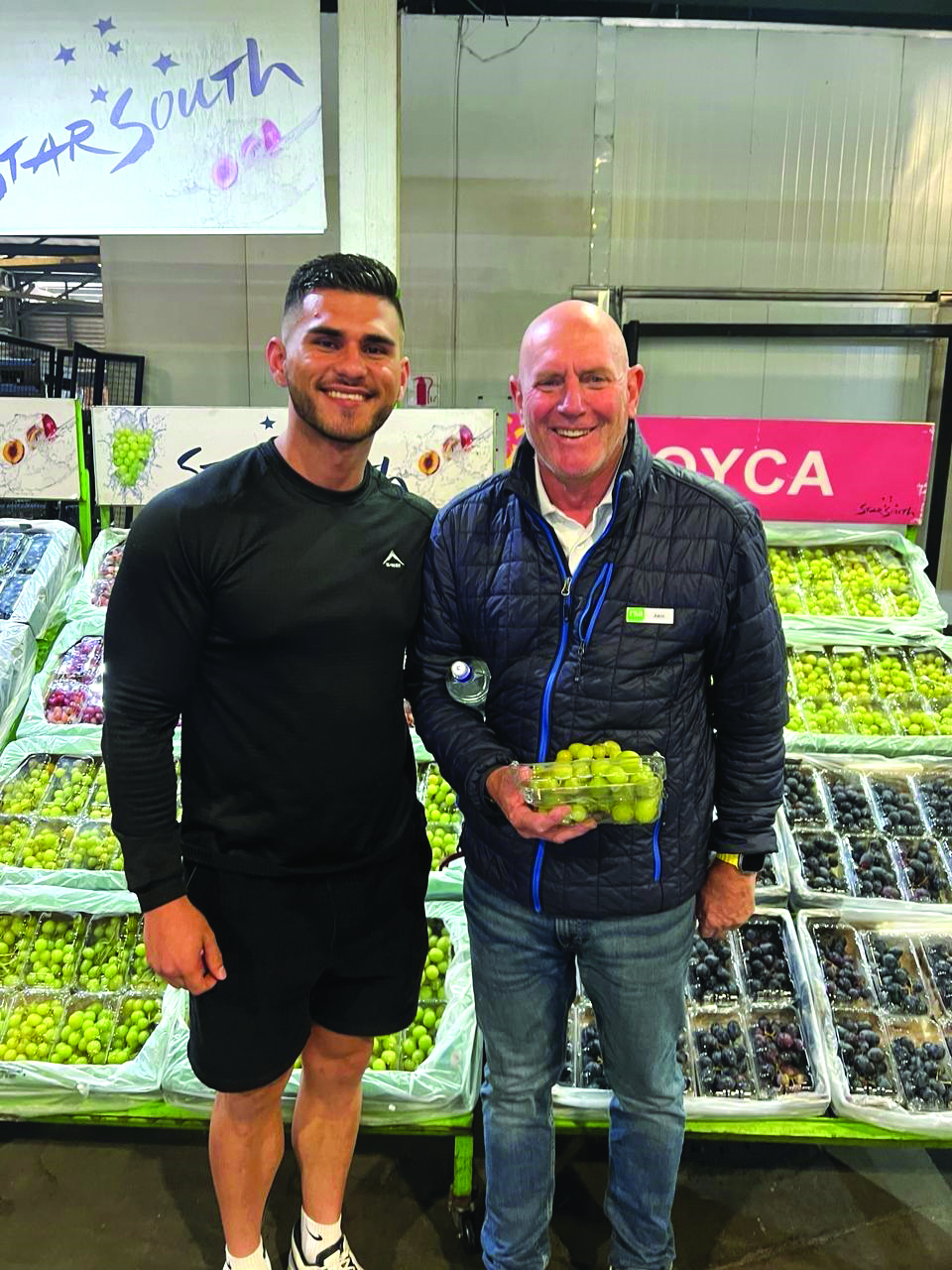Lerato Matheka
In the heart of Johannesburg, where the city’s pulse beats strongest, lies an indispensable hub for the agricultural industry: Joburg Market.
Founded with the vision to build a smart, globally competitive fresh-produce trading centre, Joburg Market has catalysed the growth of Johannesburg’s economy by providing trading facilities for both smallholder and large commercial farmers, while enhancing the buyers’ experience of fresh-produce procurement.
Jaco Oosthuizen, CEO of RSA Group, when speaking with SADC journalists during a Food for Mzansi’s annual Young Farmers Indaba journalists’ study tour, underscored the essence of Joburg Market’s mission, stating, “Our strategic intent of creating sustainable fresh produce market services for all key stakeholders remains paramount. This is underpinned by the Market’s vision to be people-centric through a smart fresh produce hub that is globally competitive and enabling local job creation and transformation.”
A Successful Legacy Facilitating Trade and Growth
The success story of Joburg Market is one of evolution and innovation. From its modest beginnings in Market Square in the late 19th century, as described by Oosthuizen, to its current status as the largest fresh produce market in South Africa and Africa by volume and value, Joburg Market has continually adapted to meet the needs of a dynamic marketplace.
Its relocation to the City Deep area in 1972, and subsequent corporatisation in 2000, marked pivotal moments in its history, solidifying its role as a cornerstone of Johannesburg’s economic landscape, Oosthuizen said.
“Today, Joburg Market is a lifeline for approximately 5,000 farmers from across South Africa and other African countries, facilitating trade with a diverse buyer base averaging about 10,000 daily.”
“The Market operates on a commission system, with a modest 5% commission charged to producers for all sales made on the commission floor,” Oosthuizen explained, adding that market agents, vital intermediaries between farmers and buyers, negotiate an additional commission of up to 7.5%, ensuring fair compensation for their services.
“This place is where prices are first discovered,” RSA Group CEO said, noting this equitable fee structure ensures that farmers receive fair compensation for their produce while enabling Joburg Market to cover its operational costs and invest in infrastructure development.
Spanning three food hubs—Fruit, Potato & Onion, and Vegetable—Joburg Market boasts a total area of 65,000m2, making it a colossal trading platform for fresh produce. Its strategic location, just 5km south of Johannesburg’s central business district, ensures convenient accessibility for all stakeholders.
Adding its vast trading infrastructure, Oosthuizen disclosed that the Market offers value-adding services such as cold rooms capable of accommodating over 4,500 pallets of fresh produce, and banana ripening rooms with a capacity for 1,590 pallets.
“These facilities not only optimise efficiency but also uphold the Market’s commitment to quality and freshness.”
Driving Economic Growth and Empowerment
“As a testament to its success, the Joburg Market has emerged as a leading player in the African fresh produce sector, supplying not only local markets but also catering to international demand,” he said.
He added, “With a staff complement of 321 employees, the Market operates as a central trading facility, receiving produce from both domestic and international sources daily.”
He highlighted that the Market’s value proposition lies in its role as a one-stop shop, fostering a competitive, transparent, and accessible trading ecosystem. By providing immediate cash-flow improvement for clients and fair prices for consumers, “…the Market ensures mutual benefit for all stakeholders. Its operating model, characterised by seamless alignment of roles and responsibilities, fast decision making, and a culture of collaboration, sets the standard for excellence in fresh produce trading.
Innovation and Sustainability
For new and seasoned farmers alike, the CEO pointed out that Joburg Market represents not only a marketplace but a gateway to opportunity.
“With its unwavering commitment to sustainability, innovation, and stakeholder empowerment, Joburg Market stands as a beacon of success in South Africa’s agricultural landscape, beckoning farmers to join in its journey towards a brighter, more prosperous future.”
“As the agricultural industry evolves in response to changing consumer preferences, market dynamics, and environmental challenges, Joburg Market remains at the forefront of innovation and sustainability. With its state-of-the-art trading platform, advanced technology systems, and data-driven insights, the Market ensures transparency, efficiency, and competitiveness in fresh produce trading.
He contiued to note that the Market is committed to environmental stewardship and resource conservation.
“Through initiatives such as waste reduction, energy efficiency, and water conservation, the Market minimises its ecological footprint and promotes sustainable practices among its stakeholders. By embracing innovation and sustainability, Joburg Market not only secures its long-term viability but also contributes to the broader goal of building a resilient and prosperous agricultural sector,” he said.
A Vision for the Future
As Joburg Market continues its journey of growth and transformation, its vision remains clear: to be a beacon of excellence, innovation, and opportunity in the global fresh produce market. With its unwavering commitment to serving its stakeholders, fostering economic empowerment, and driving sustainable development, Joburg Market stands poised to shape the future of agriculture in South Africa and beyond.
Summary
- From its modest beginnings in Market Square in the late 19th century, as described by Oosthuizen, to its current status as the largest fresh produce market in South Africa and Africa by volume and value, Joburg Market has continually adapted to meet the needs of a dynamic marketplace.
- “The Market operates on a commission system, with a modest 5% commission charged to producers for all sales made on the commission floor,” Oosthuizen explained, adding that market agents, vital intermediaries between farmers and buyers, negotiate an additional commission of up to 7.
- “As a testament to its success, the Joburg Market has emerged as a leading player in the African fresh produce sector, supplying not only local markets but also catering to international demand,” he said.

Your Trusted Source for News and Insights in Lesotho!
At Newsday Media, we are passionate about delivering accurate, timely, and engaging news and multimedia content to our diverse audience. Founded with the vision of revolutionizing the media landscape in Lesotho, we have grown into a leading hybrid media company that blends traditional journalism with innovative digital platforms.








